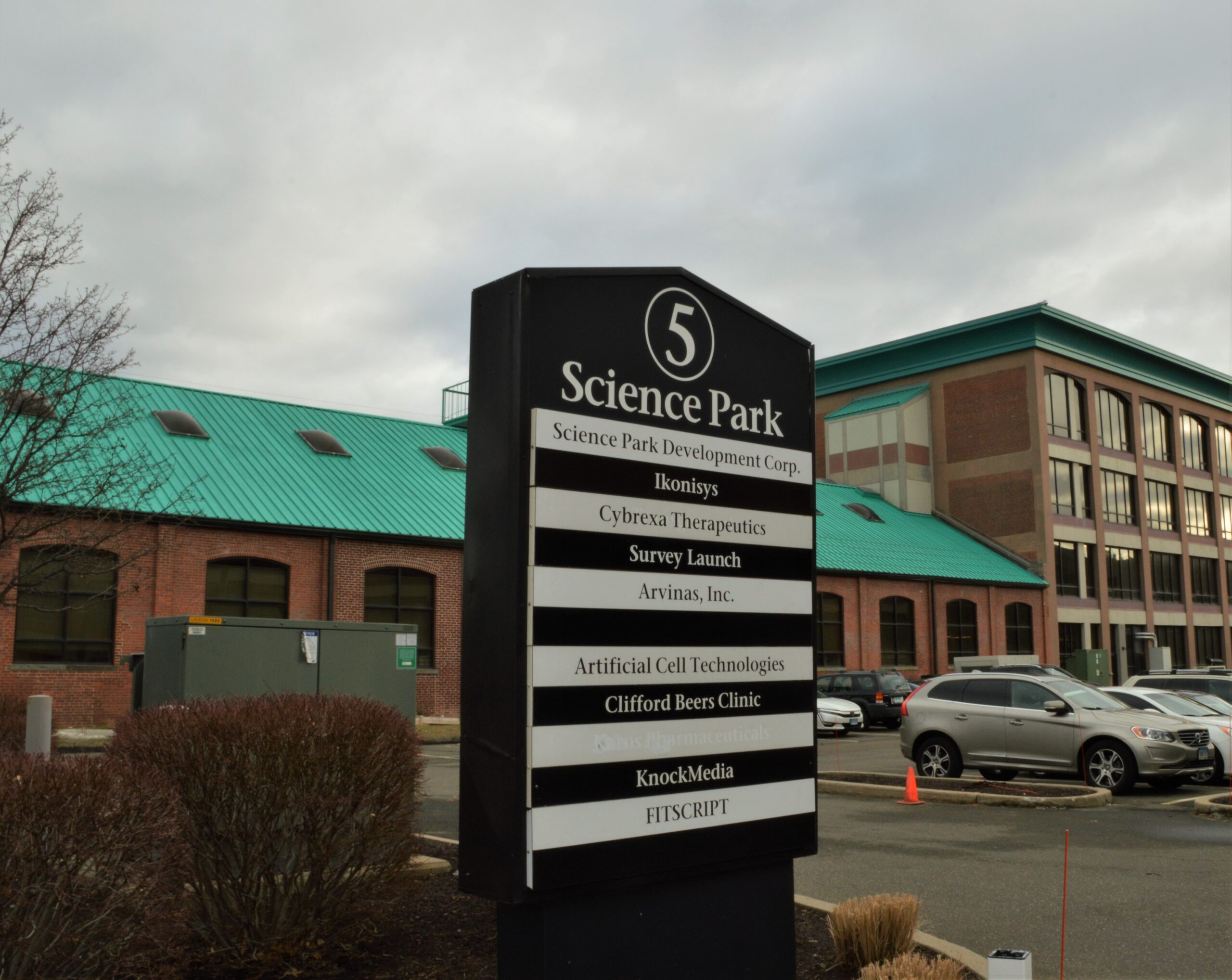Local biotech firm Arvinas refocusing after turbulent stretch
Arvinas saw a steep stock price drop after Pfizer decided to stop developing a breast cancer drug with the New Haven–based firm. CEO John Houston told the News about the company’s plans for the future.

Sonia Ruiz
The March discontinuation of a breast cancer drug has prompted a local biotech firm’s stock to plummet more than 60 percent in the past six months — but its CEO remains optimistic about the company’s future.
Arvinas, a Yalie-founded and New Haven–based biotech firm, joined forces with Pfizer in 2021 to develop a breast cancer drug, featuring the local firm’s signature targeted protein degradation process. Pfizer’s decision in March to stop developing the drug sent Arvinas’ stock prices into immediate free fall, dropping 53 percent in a week.
The discontinued development prompted Arvinas management to lay off 33 percent of the firm’s employees in May, according to the industry news outlet Fierce Biotech, and an additional 15 percent this month, the company announced in a press release.
Yet in an interview with the News, John Houston — Arvinas’ chair, CEO and president — voiced optimism about the firm’s future and cited industry-wide concerns about falling biotech stocks.
“I think Arvinas is poised to do this significant reset,” he said, referring to the firm’s recent pivot to early-development drugs. “I think it’s going to be a really strong, positive move for the company over the next several months.”
The firm, founded by Yale professor Craig Crews in 2013, specializes in targeted protein degradation, or TPD, an innovative way of combating diseases that focuses on disrupting cellular processes of diseased cells.
This process — based on Crews’ discovery of proteolysis targeting chimeras, or PROTACs, a molecule that breaks down disease-causing proteins —- allowed Arvinas to become the first company in the rapidly-growing TPD biotechnology sector. Crews remained with the company as its chief scientific advisor until 2021.
Arvinas transitioned from a privately held company to a publicly traded one in 2018. The company’s stock then soared in 2021 after Arvinas announced its partnership with Pfizer to work on vepdegestrant, a drug that uses TPD to fight and remove breast cancer cells.
“It’s an unusual scenario to have a very large global entity like Pfizer working with a small company like our business, because there’s obviously a huge, huge difference in resources available to each company,” Houston said.
He also noted that while Arvinas brought its innovative TPD process to the partnership, Pfizer supplied its “powerhouse development machinery,” enabling the company to run clinical trials.
In March, after Pfizer decided that it did not want to commercialize the drug or continue to develop it, Arvinas agreed to jointly license vepdegestrant to a third-party company.
According to Houston, the subsequent rounds of layoffs were directly related to the company’s shift away from the commercialization of the new drug.
“The majority of the reduction that we’ve just announced has been in the teams that were involved in the commercial setup,” Houston said. “It allows you to go back to a setting where you’re just focused on early development and research, and your company can be much smaller when it’s in that setting.”
In an email to the News, Crews pointed to the positive signs of vepdegestrant’s latest Phase III trial. Vepdegestrant is still awaiting approval from the Food and Drug Administration, which is expected to make a decision in May, according to Crews.
“If successful, it will be the first FDA-approved PROTAC drug, which will be a major milestone in the Targeted Protein Degradation (TPD) field,” Crews wrote.
Houston said the biotech industry is in a very different state from its peak in 2021.
“The last several years have been really painful for biotech,” Houston said.
Jodie Gillon, the president and CEO of BioCT, an industry group that offers services to local life science companies, described the volatile nature of the industry in an email to the News.
“In Biotech 1/10 drugs will make it to market taking 10-12 years and typically costing $1 billion,” Gillon wrote.
Gillon wrote that she hopes former Arvinas workers can fill crucial roles for growing firms in Connecticut.
When “a company such as Arvinas has a temporary downturn and cuts talent, we and our partners swoop in to ensure their tremendous talent stays in the State,” Gillon wrote. “We have companies in and around New Haven growing and immediately needing trained specialized talent from Arvinas.”
BioCT has created a job board to help former Arvinas employees and local firms find each other, Gillon wrote.
Meanwhile, Arvinas’ current focuses include combating lymphoma and Parkinson’s disease through TPD, Houston said.
According to its Sept. 17 quarterly report, Arvinas has enough money to fund its research until 2028. The company also announced a $100 million stock buyback, which Houston said indicated the board of directors’ belief in its future.
Houston announced in July that he was stepping down as the company’s CEO, pending the hiring of a new CEO. He said the search is still ongoing and that he will remain chair of the board after his replacement is selected.
Arvinas is located at 5 Science Park.
Interested in getting more news about New Haven? Join our newsletter!







